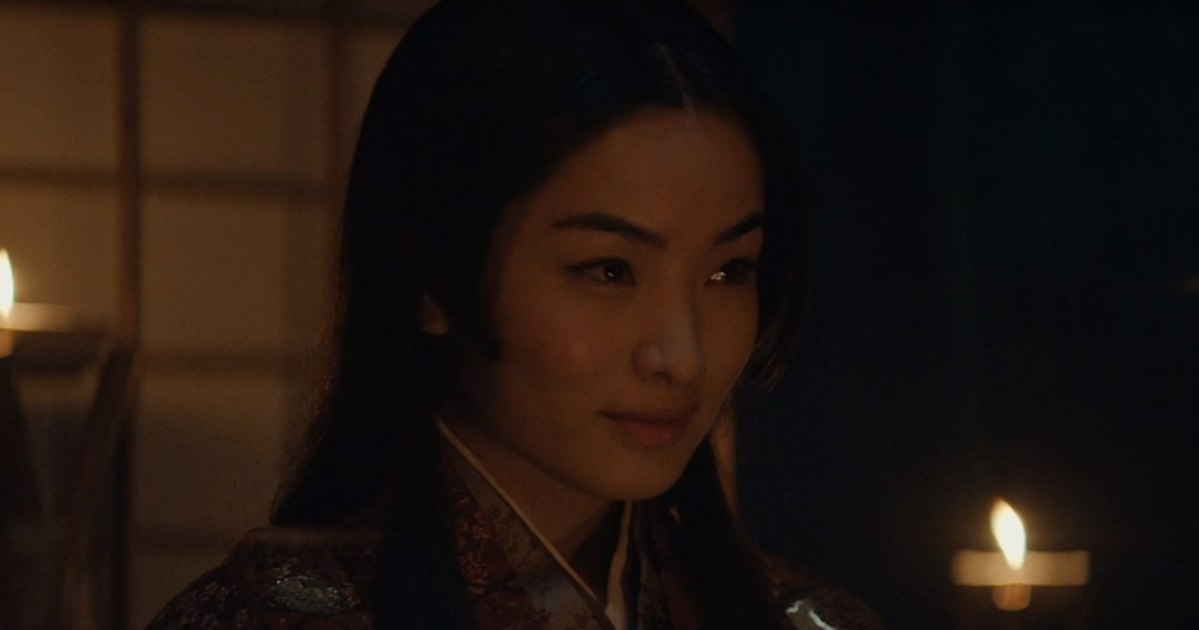In Shōgun, Lady Mariko works as the interpreter of the Englishman, John Blackthorne. Considering the show is set in Japan, you might have wondered why Mariko knows English in Shōgun. Allow us to explain why.
Spoiler Warning: This article includes spoilers for Shōgun, so proceed with caution.
Why Mariko Knows English in FX's Shōgun
Lady Toda Mariko (played by Anna Sawai) is one of the few characters in the show who can converse in English. This is why she was chosen to be the interpreter for Blackthorne (played by Cosmo Jarvis).
But why does Mariko know English in Shōgun? How did she learn how to speak the language?
Mariko's backstory is sad and depressing. Instead of being allowed to commit seppuku like the rest of her dishonored family, Mariko was forced to marry Toda Buntaro (played by Shinnosuke Abe).
The marriage, however, was a loveless one. Buntaro was also often abusive towards Mariko. In turn, she refused to be a typical submissive Japanese wife.
For unknown reasons, Mariko discovered her love for the languages. The Jesuits taught her European languages, including English and Portuguese.
With her gift, Mariko earned a position as an interpreter for Lord Yoshii Toranaga (played by Hiroyuki Sanada).
When Blackthorne arrived in Japan, Mariko became his translator for the lord of Kanto.
RELATED: Why Did John Blackthorne Go to Japan? FX's Shogun Retells 'First White Samurai' Story
Explaining the Language Confusion in Shōgun
As it actually happened in history, the figures inspired by Shōgun's characters spoke Portuguese instead of English. This is because the only Europeans present in Japan at the time were Portuguese.
Blackthorne's character, William Adams, was actually the first non-Portuguese European to make a connection with the Japanese.
But for the context of the FX series, the characters speak in either English or Japanese. The English language is referencing the Portuguese language.
Another reason why the Shōgun characters spoke in English instead of Portuguese language is that the show is an American production.
So every time a character is supposed to speak in Portuguese in Shõgun, you actually hear them speak English. But in reality, they spoke in Portuguese during this period.
RELATED: What Happens After Nagakado's Regent Attack in Shōgun Episode 4?
Why is Shōgun Told in Japanese Instead of English?
Going back to the fact that Shōgun is an American production, you may be wondering why the characters are speaking mostly in Japanese.
Unlike other shows, Shōgun's Japanese characters do not speak English or have a voiceover. Even though there are some English-speaking actors on the show, the majority is Japanese.
Also, it doesn't make sense to make a show about Japanese history without its main language. As explained by the show's producer, Eriko Miyagawa, in an interview:
"I feel like in this day and age, audiences are more open to reading subtitles, and seeing actors who speak their native language deliver the performance. The time was calling for this level of authenticity."
Show co-creator, Rachel Kondo, also shared:
"We are so grateful to FX for entrusting us with the process of learning how to do that and for having the faith in it."
Finally, Justin Marks, a co-creator of the show, also said:
"To deny these characters — to deny our story the sophistication that would require us to understand what these Japanese characters are saying, and thus to have it subtitled — would be to sort of cut us at the knees in terms of how interesting this story could be.
Follow our Facebook page for more news coverage and other explainer articles.







